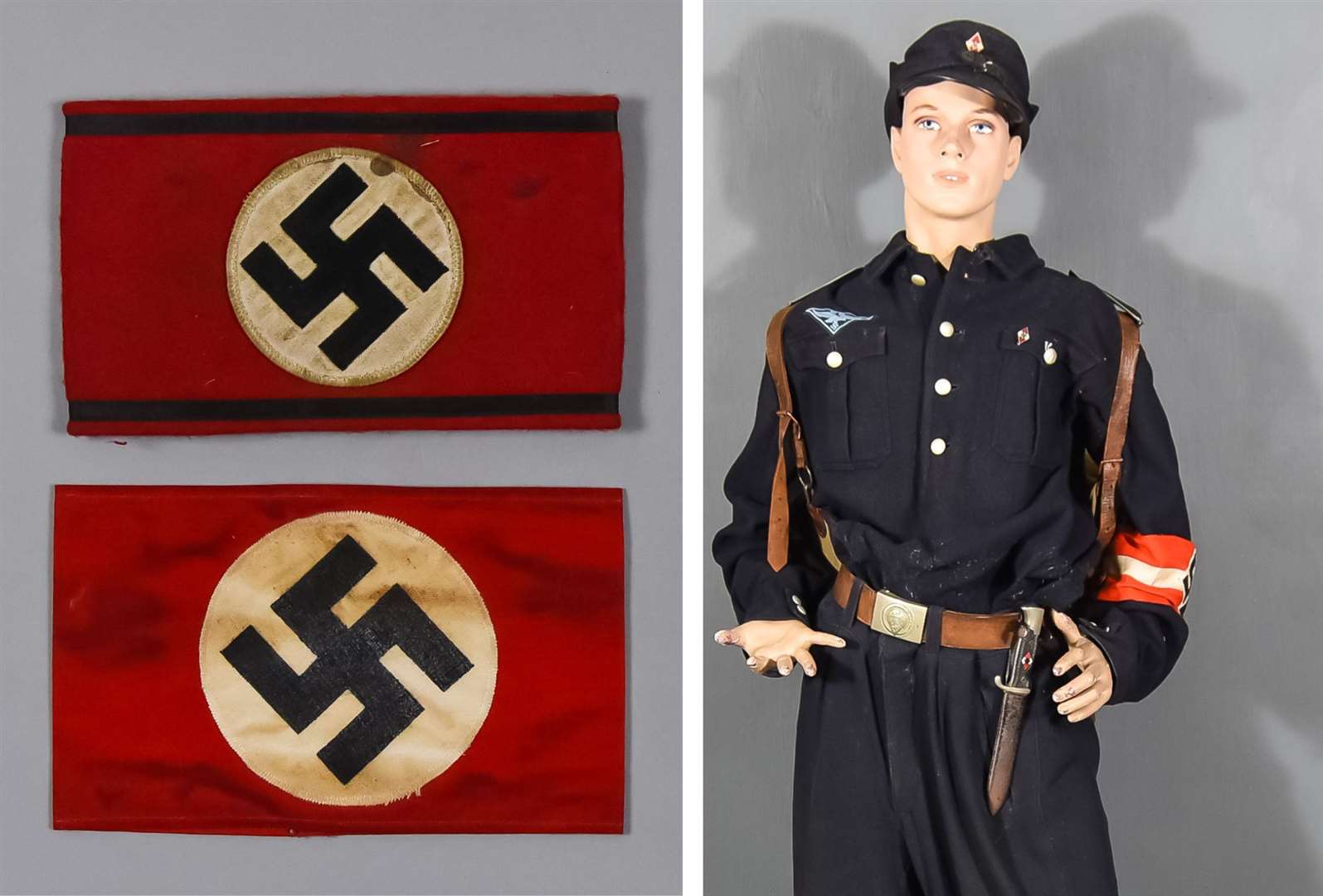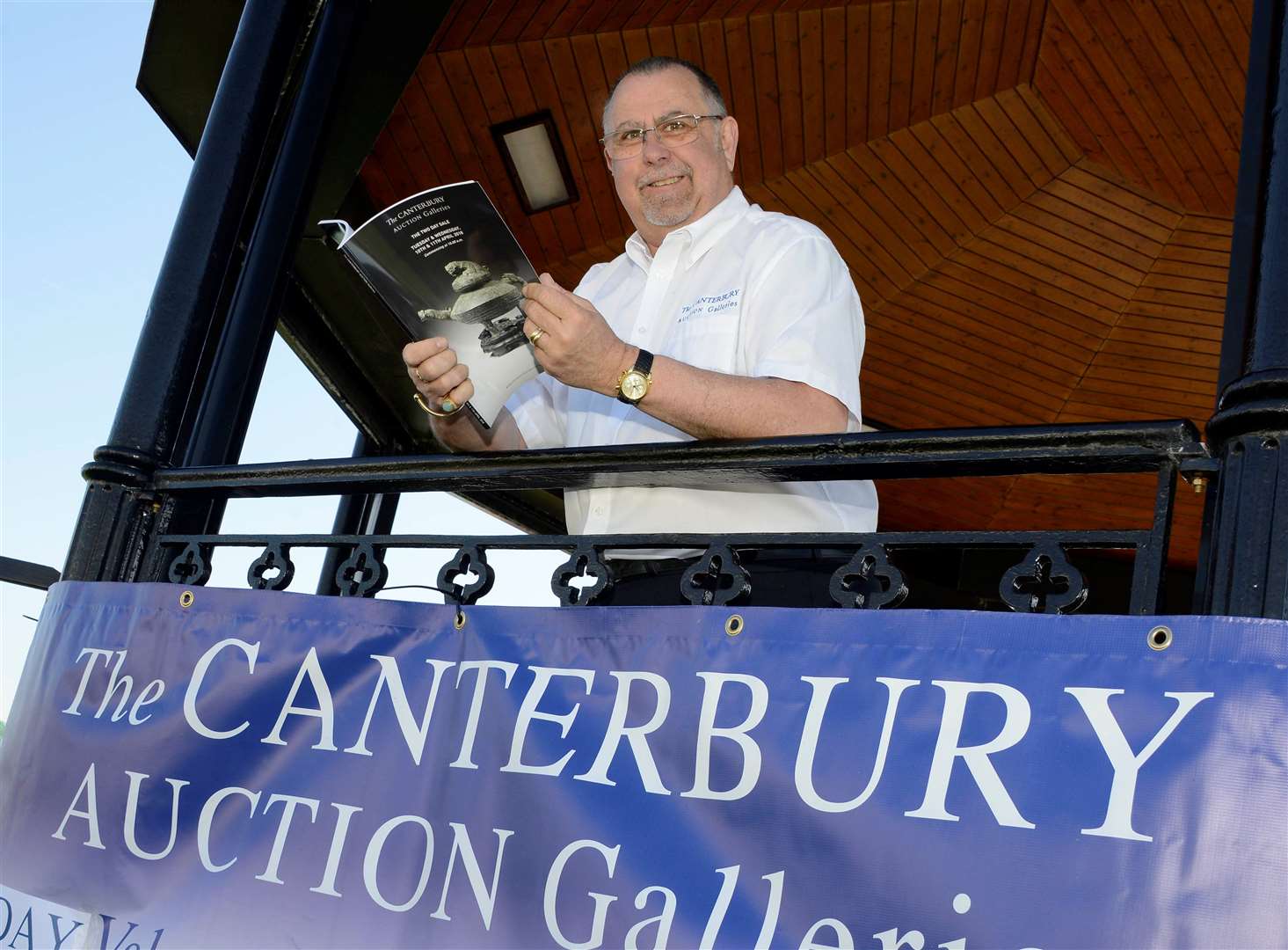The Canterbury Auction Galleries defends selling Nazi collection including Hitler Youth uniform
Published: 05:00, 25 May 2023
Updated: 12:59, 25 May 2023
An auction house boss has defended his decision to sell a collection of Nazi memorabilia.
The items, which include uniforms and flags bearing swastikas, are set to go under the hammer next week at The Canterbury Auction Galleries in Station Road.

The president of a local synagogue has urged the firm to consider removing the items - while a university professor has also raised objections.
But the auction house’s managing director and militaria specialist David Parker told KentOnline they will sell such items as long as the law allows - and argues “you can’t just expunge history”.
It is not illegal to sell Nazi memorabilia in this country - as in some others like Germany, France and Austria - but many leading auction houses, including Christie’s and Sotheby’s refuse to do so.
Mr Parker said: “I’m sorry if we have offended anyone but we’re not doing anything illegal and are perfectly entitled to sell these items.
“We have a contract with the seller who this collection belongs to and I can’t just tear that up.

“Obviously I don’t approve of what happened – but you can’t just expunge history.”
The eight lots include what is described as a “rare and unusual” mannequin dressed in Hitler Youth uniform with an eagle and swastika breast badge, red and white swastika arm bands and a belt and dagger, which has a guide price of £700 to £900.
Also listed is a German WWII SS tunic, guided at £300 to £400 and a Panzer regiment field tunic with an embroidered swastika. Meanwhile, a WWII German belt and buckle – marked 'Gott Mit Uns' over an eagle with swastika – is guided at £150 to £250, and two Nazi flags are guided between £80 to £150.
Mr Parker said he had received a letter of objection from a university professor regarding the sale – but was not persuaded to change his mind.
“There is a lot of this sort of material in collections and museums – and we will continue to sell it as long as the law allows us,” he said.
“Hugo Boss designed the Nazi uniforms but I don’t see a clamour to close their shops down.
“There are lots of things in history which we don’t like but should never forget.”
Mr Parker says there is a “limited but buoyant” market for such items and he could not be judgemental about what he sold.
He also points out that in the UK there are 200 lots Nazi items listed for sale at various auction houses this week. Meanwhile in the last 10 years there have been more than 12,000 lots of these items listed as sold at auction in the UK.
But Godfrey Fischer, president of the Thanet and District Reform Jewish Synagogue, hopes the auction house will consider removing the items from the sale, and suggests they should be placed in a museum.
He told KentOnline: “They shouldn’t really be traded among private hands where they could be misused but perhaps be placed in a museum with explanation to their historical context, so I would hope the auction house would consider removing them from the sale.”
The sale of Nazi memorabilia has previously sparked calls from a leading Holocaust charity for the government to consider legislation prohibiting the sale of such items, after a UK auction house sold a Nazi artefact for tens of thousands of pounds.
In 2019, The Holocaust Educational Trust's (HET) chief executive Karen Pollock, responded to an auction house selling a Blutorden (Blood Order) Medal awarded to a Nazi bodyguard, deeming it “not appropriate”, adding that it might be “time for clearer regulation on the sale of these items.”
She added that it had long been HET’s view that “it is not appropriate for items like this to be on the market for personal profit or macabre interest”, arguing that such items should rather be “placed in archives, museums or in an educational context”.
She went on: “Several leading auction houses and online sites already rightly refuse to sell such material and many countries have banned the sale of Nazi memorabilia.
“Perhaps it is time for clearer regulation on the sale of these items here in the UK.”
In 2019, the BBC reported that a Belfast auction house had cancelled the planned sale of Nazi memorablia due to “sensitivities".
Swastika-emblazoned tableware from Nazi Germany was expected to sell for about £20,000 when bidding opened at Bloomfield Auctions.
But the items - reportedly produced for Adolf Hitler's 50th birthday - were withdrawn following controversy.
Bloomfield Auctions managing director Karl Bennett said they would not sell similar items in the future.
He said: "In light of the sensitivities surrounding the items, we've taken the decision to withdraw the sale, and they will not be sold by this company in the future."
More by this author
Gerry Warren